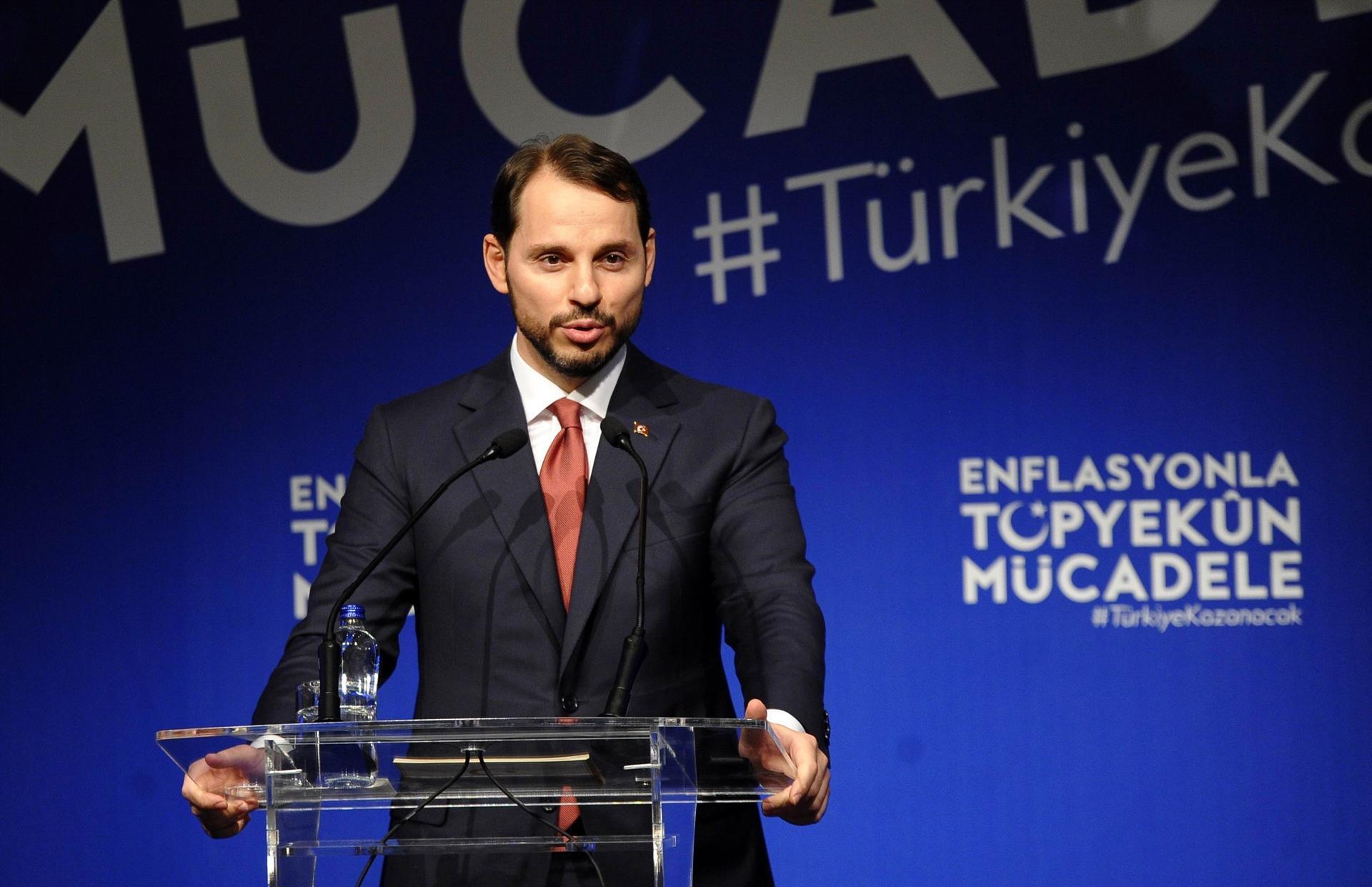Turkish gov’t launches plan against surging inflation
ISTANBUL

Unveiling a new set of measures to fight inflation, Turkish Treasury and Finance Minister Berat Albayrak vowed an “all-out war” on inflation with the support of the private sector on Oct. 9.
Under the program, Turkey’s private sector has agreed to cut prices on its goods by at least 10 percent across the board, the minister said at an event in Istanbul, as he called on businesses “to join a national struggle to tame soaring inflation.”
“The fight against inflation and for price stability is not a fight that can be conducted by the state and institutions alone,” Albayrak said.
The voluntary discount would be reflected in all the goods that make up Turkey’s inflation basket and prices would be lowered by a minimum 10 percent until the end of the year, he said.
Companies that try to increase profits under the current circumstances would cause greater losses in the near term, he warned.
It was not immediately clear how many goods would ultimately be impacted or how many companies would take part, but Albayrak called on the public to support those that push through with the price cuts.
The new program also included a freeze on energy prices until the year-end and an acceleration of VAT rebates.
The banks will give a 10 percent discount to high-interest loans given after Aug. 1, the minister also noted.
President Recep Tayyip Erdoğan has called on Turkish people to report unusual price hikes in shops, saying it was the government’s responsibility to raid the inventories of stores if necessary.
As the currency crisis deepened in August, the government made it illegal for companies to arbitrarily impose price increases if they were not impacted by a rise in input costs or the exchange rate.
According to the country’s statistical authority, Turkey’s annual inflation reached 24.52 percent in September, up from 17.9 in August.
Over the past five years, annual inflation saw its lowest level at 6.13 percent in April 2013, while the figure reached its highest level this September.
As noted in Turkey’s new economy program announced last month, the country’s inflation rate target is 20.8 percent this year, 15.9 percent next year, 9.8 percent in 2020 and 6 percent in 2021.
Under the new program, Turkey’s state-run Meat and Milk Board (ESK) will also make a 10 percent cut in the prices of some products as of Oct. 9, Agriculture and Forestry Minister Bekir Pakdemirli said at the event.
“As of today, Gübretaş will apply a 10 percent cut in prices of a series of liquid and powder fertilizers,” he said, adding that chain markets would slash 10 percent in a total of 50 products.
Turkey ‘to lower finance costs, cut dependence on imports’
Turkey will lower financing costs and cut dependence on imports, Industry Minister Mustafa Varank said at the same event on Oct. 9, as it aims to rein in costs for investment and production and tame double-digit inflation.
“We will offer up to 14 percent financing support to companies for their [Turkish] lira-based loans,” he said, adding that a new Libor-based incentive of $200,000 was also in the pipeline for small and medium-sized enterprises, which plan to make exports.
Varank also said the repayment of the Small and Medium Industry Development Organization (KOSGEB) loans would be postponed for the next three months.
“Under three different KOSGEB programs, we will offer almost 25 percent of incentives for 1 billion liras or more of machinery and equipment investments,” he said.
















